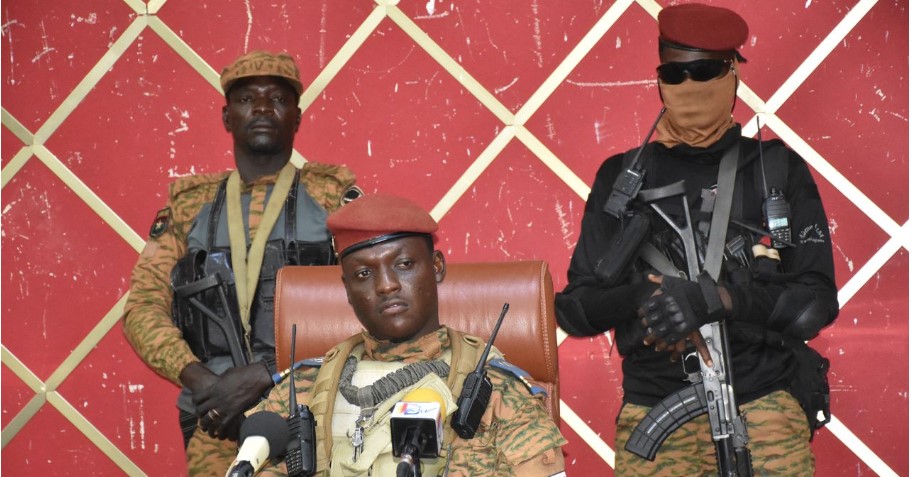The political landscape of Burkina Faso, a West African nation grappling with instability and jihadist insurgency, has been reshaped by a recent pardon granted to 21 soldiers implicated in a failed coup attempt in 2015. This decision, enacted by Captain Ibrahim Traore, the leader of the military junta that seized power in September 2022, forms part of a broader amnesty initiative announced in December of the previous year. The pardon specifically targets individuals convicted for their roles in the attempted overthrow of the transitional government established following the ousting of long-time president Blaise Compaore in 2014. This move signifies a potential shift in the country’s approach to internal conflicts and raises questions about the balance between accountability, reconciliation, and the urgent need for national unity in the face of escalating security threats.
The pardoned soldiers, whose names were listed in an official decree issued last week, comprise a mix of officers and lower-ranking personnel. Among them are six officers, including two former commanders within the erstwhile presidential guard, and fifteen non-commissioned officers and rank-and-file soldiers. These individuals were previously convicted by a military tribunal in Ouagadougou in 2019 on charges ranging from undermining state security and treason to murder. Their sentences varied in length, reflecting the differing levels of involvement attributed to each individual. This targeted pardon excludes the perceived masterminds of the 2015 coup attempt, General Gilbert Diendere, Compaore’s former chief of staff, and Djibril Bassole, the former head of diplomacy, who received sentences of 20 and 10 years respectively. This distinction suggests a calculated approach by the junta, possibly aiming to reintegrate lower-level participants while maintaining accountability for those deemed most culpable.
The amnesty offered to these 21 soldiers, while seemingly a gesture of reconciliation, comes with specific conditions attached. To qualify for the pardon, they must demonstrate a commitment to the nation’s territorial integrity and actively participate in the fight against terrorism. This requirement highlights the junta’s prioritization of counter-insurgency efforts and its intention to leverage the pardoned soldiers’ military experience in addressing the escalating security challenges. Burkina Faso has been battling jihadist groups affiliated with Al-Qaeda and the Islamic State for over a decade, a conflict that has destabilized the country and contributed to widespread violence and displacement. By reintegrating these soldiers, the junta likely aims to bolster its fighting force and potentially gain valuable intelligence on internal dynamics.
The pardon, however, does not entail full reinstatement. While the pardoned individuals can rejoin the army, they will not be eligible for compensation for their time served or for career advancement. This stipulation suggests a nuanced approach, balancing the need for manpower with the principle of accountability. The junta appears to be signaling that while past actions can be forgiven in the interest of national unity, they will not be entirely overlooked. This tiered approach to reintegration may be an attempt to address the complex political dynamics within the military and prevent future unrest by offering a pathway back into service without completely absolving past transgressions.
The 2015 coup attempt, which aimed to overthrow the transitional government installed after Compaore’s downfall, resulted in significant casualties and further destabilized the nation. Loyalist forces successfully quelled the uprising within two weeks, but the incident left a legacy of violence and division. The ensuing trials and convictions marked an attempt to hold those responsible accountable, but the recent pardons demonstrate a shift in priorities under the current junta. The decision to grant amnesty to a significant number of those involved, while excluding the key figures, suggests a strategic calculus aimed at consolidating power, bolstering military strength, and fostering a semblance of unity in a deeply fractured nation.
The broader amnesty announced by the junta in December encompasses approximately 1,200 individuals convicted in connection with the 2015 coup attempt. This large-scale pardon, while welcomed by some as a step towards national reconciliation, raises concerns about potential impunity and the long-term implications for the rule of law. The requirement for pardoned individuals to demonstrate their commitment to fighting terrorism further politicizes the amnesty process, potentially creating a system where loyalty to the current regime is prioritized over genuine remorse or rehabilitation. The long-term success of this approach remains to be seen, and its impact on Burkina Faso’s fragile political landscape will undoubtedly be closely scrutinized in the coming months and years.


